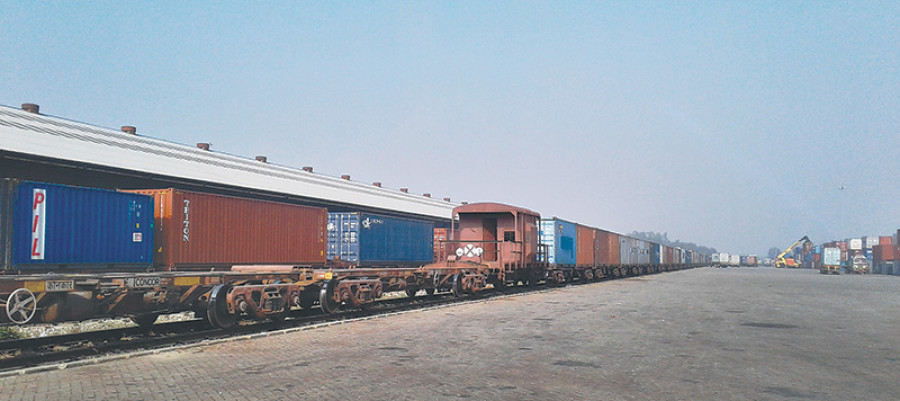Money
Protesting customs agents in Kolkata port halt Nepal-bound cargo
Customs handling agents at Kolkata port have been disrupting the movement of Nepal-bound cargo since Tuesday after transshipment privileges and electronic cargo tracking began to be used.
Customs handling agents at Kolkata port have been disrupting the movement of Nepal-bound cargo since Tuesday after transshipment privileges and electronic cargo tracking began to be used. Upset by the loss of income they had been earning by using the manual system, the agents showed their dissatisfaction by stopping the movement of goods.
Nepal has been receiving transshipment privileges and using electronic cargo tracking at Vishakhapatnam port since August, and this was extended to Haldiya and Kolkata ports with the consent of Indian authorities. Electronic tracking uses the Global Positioning System, a satellite-based radio navigation system, and allows the shipper to keep track of consignments.
Transshipment privileges allow goods imported from third countries to be dispatched directly to the Birgunj Inland Container Depot and cleared through customs at the Nepal-India border. This helps reduce the overall cost of trading since traders don’t have to pay demurrage and detention charges because cargo movement is faster.
Rabi Shankar Sainju, joint secretary at the Ministry of Industry, Commerce and Supplies, said the customs agents could have become displeased by the possible loss of income.
“It’s mostly the agents who also own trucks who are protesting,” Sainju said.
Currently, around 400 customs agents are engaged in clearing Nepal-bound cargo at Kolkata port who are paid a commission for their services. Nepal receives 200-300
containers per week via the Indian sea port.
Sainju said transshipment privileges and electronic cargo tracking only applied to goods being dispatched by rail to the dry port in Birgunj. According to him, the ministry has started talks with the Indian Embassy in Kathmandu and Kolkata port authorities to resolve the problem. The governments of both countries are positive about implementing the new system, Sainju said. “If the customs agents do not stop disrupting cargo movement, we will be compelled to route third country imports via Haldiya and Vishakhapatnam ports where no such problems exist,” he said.
On June 6, 2017, Nepal and India signed a memorandum of intent to pilot the use of electronic cargo tracking to facilitate traffic in transit on selected routes between the two countries. The ministry launched electronic cargo tracking at Kolkata port last April.
Many importers switched to Vishakhapatnam port after the facility was started there, helping to ease pressure at Kolkata port. According to freight forwarders, the system helped reduce congestion as a result of which the number of containers being stuck at the port came down to 200-300 from more than 800 weekly.
Prakash Singh Karki, president of the Nepal Freight Forwarders’ Association, said the movement of cargo had stopped completely since Tuesday due to the protest by customs agents. “Although the new system will affect our earnings too, we support the government’s move to use transshipment privileges and electronic cargo tracking,” Karki said.




 9.89°C Kathmandu
9.89°C Kathmandu














